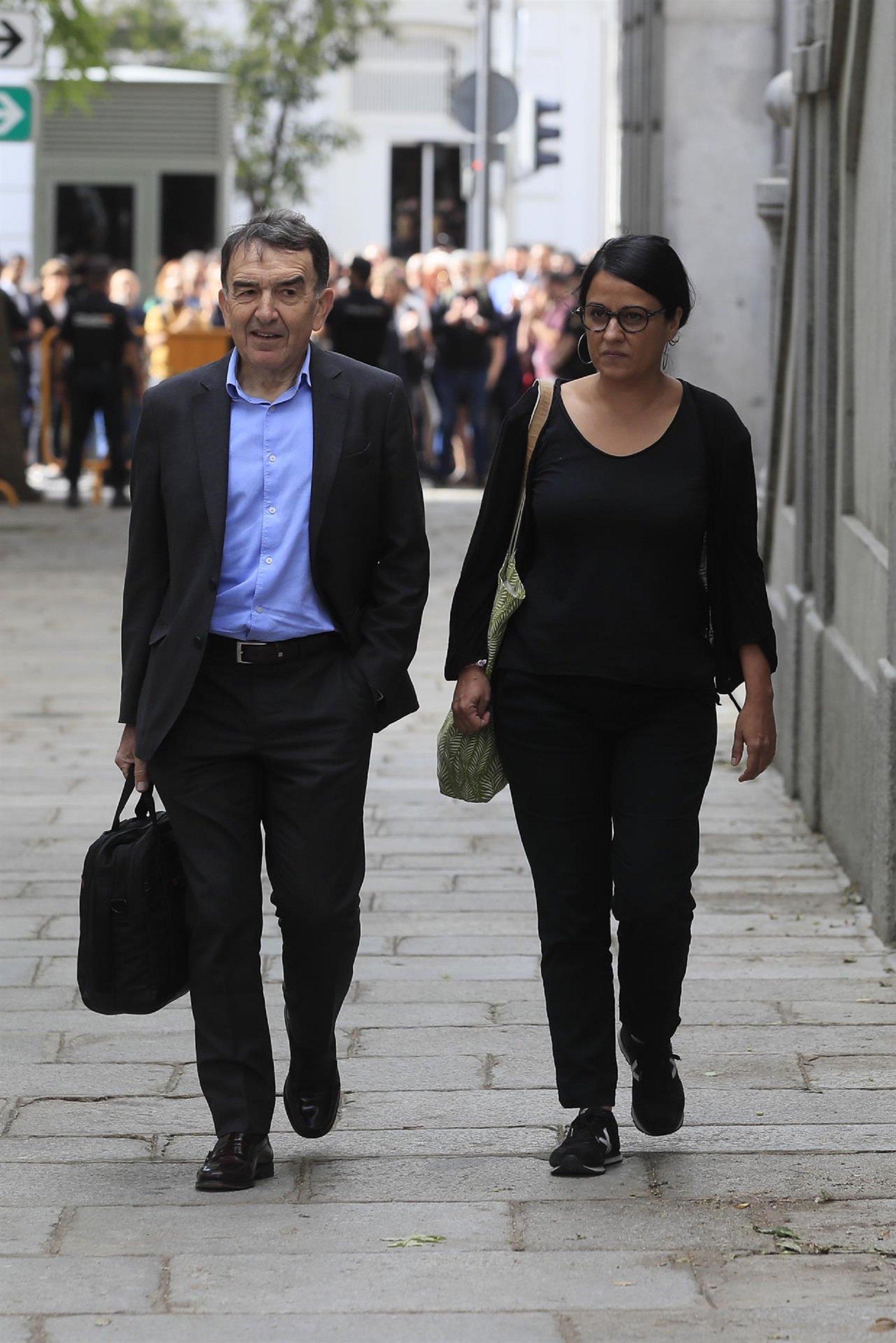No surprises. Judge Pablo Llarena, the Spanish Supreme Court justice in charge of the investigation stage of the case against the Catalan pro-independence leaders, has released his investigative conclusion with respect to the former MP for the pro-independence CUP party, Anna Gabriel, and she will be tried for an alleged offence of disobedience, the court announced this Wednesday. In his resolution, the judge refers the case to the criminal chamber of the Supreme Court, and, therefore, leaves her one step away from trial. The Supreme Court is indeed set to order Gabriel to trial, but rather than in the Madrid high court, it will send the case to an ordinary court in Barcelona, as it did with the former Catalan minister and ERC member of parliament, Meritxell Serret, although in her instance, it went to the more senior High Court of Catalania (TSJC) because as a current MP she cannot be tried in an ordinary-level court.
In the resolution, the judge asks both the public prosecutor as well as the lawyers conducting the private prosecution for the far-right Vox political party, to make submissions within 15 days on how Gabriel's case should proceed. The public prosecutor could ask for the closure of the case against Gabriel, since her case is the same as that of her former party colleague Mireia Boya, who was acquitted by the TSJC because her actions did not fit the definition of disobedience. In the resolution, the judge agreed to send evidence of the case, together with the exhibits confiscated and the amounts of money involved "to the competent chamber", that is to say, to the criminal chamber of the Supreme Court, to review the summary of the investigation, in addition to asking the opinion of the parties taking part in the case.
No aspects of the definition of disobedience apply
Gabriel appeared last week in front of judge Llarena, in Madrid, who gave her a very brief interrogation. The judge asked her if she had received any request from the Constitutional Court (TC) to cease all activity to promote Catalonia's independence process, and she denied having received such a notice. Receiving a personal demand to cease such activity is one of the necessary elements for an accusation of disobedience to succeed, and another is that the person accused must be a public authority or official, and Gabriel was not. The High Court of Catalonia (TSJC) made clear the requirements of the crime of disobedience when it acquitted Mireia Boya (CUP), for the same actions as those for which Gabriel has been investigated: presenting two legislative proposals in the Catalan Parliament, one to promote voting in the 2017 Catalan independence referendum and the second to manage Catalonia's disconnection from Spain in the event of a 'yes' victory.
In the resolution, Llarena explains that Gabriel, after having "defaulted" on summons to the court, appeared before the judge on July 19th, 2022, and her investigative declaration was made last week, on September 14th, and he remanded Gabriel at large and at the disposal of the case. The judge agreed to end the investigative phase of the case, since no new investigative actions have been requested.
After her brief appearance in the Supreme Court, Gabriel told reporters that she expected her case to be rejected, and argued that the "desire of a people must not be judicialized." Now it remains to be seen what the prosecutor thinks.

